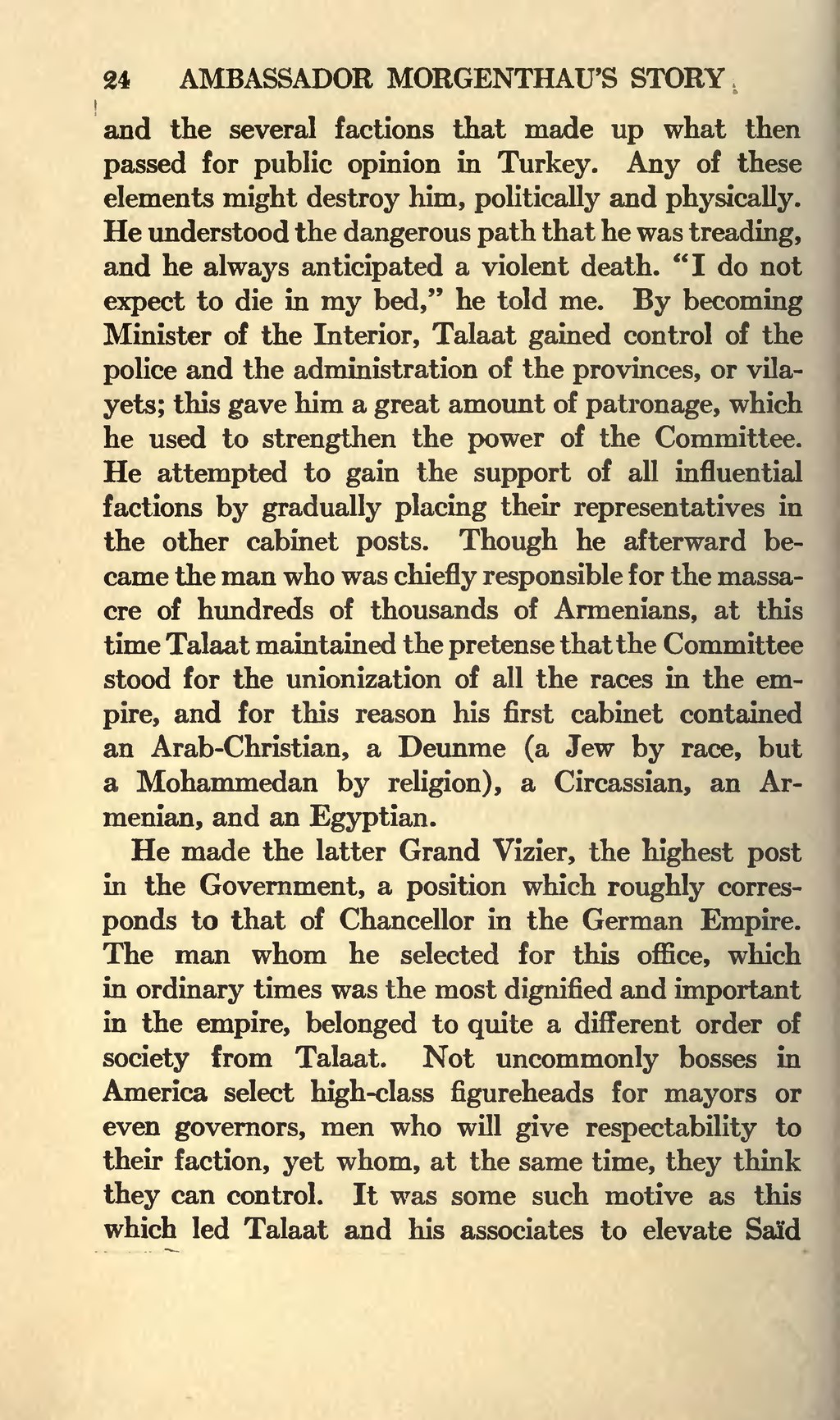and the several factions that made up what then passed for public opinion in Turkey. Any of these elements might destroy him, politically and physically. He understood the dangerous path that he was treading, and he always anticipated a violent death. "I do not expect to die in my bed," he told me. By becoming Minister of the Interior, Talaat gained control of the police and the administration of the provinces, or vilayets; this gave him a great amount of patronage, which he used to strengthen the power of the Committee. He attempted to gain the support of all influential factions by gradually placing their representatives in the other cabinet posts. Though he afterward became the man who was chiefly responsible for the massacre of hundreds of thousands of Armenians, at this time Talaat maintained the pretense that the Committee stood for the unionization of all the races in the empire, and for this reason his first cabinet contained an Arab-Christian, a Deunme (a Jew by race, but a Mohammedan by religion), a Circassian, an Armenian, and an Egyptian.
He made the latter Grand Vizier, the highest post in the Government, a position which roughly corresponds to that of Chancellor in the German Empire. The man whom he selected for this office, which in ordinary times was the most dignified and important in the empire, belonged to quite a different order of society from Talaat. Not uncommonly bosses in America select high-class figureheads for mayors or even governors, men who will give respectability to their faction, yet whom, at the same time, they think they can control. It was some such motive as this which led Talaat and his associates to elevate Saïd
